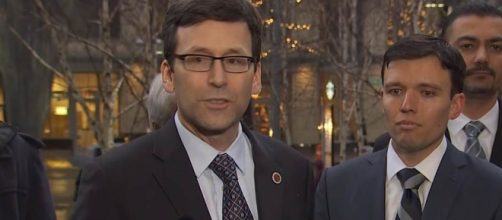Donald Trump's temporary ban on refugees and immigration has faced scorn and numerous legal battles throughout the United States. The most significant challenge to the ban occurred on Friday as far from Washington as possible -- in Washington state, in fact, where Judge James Robart declared the order to be stopped throughout the country.
The decision
Washington Attorney General Bob Ferguson sued against some of the stipulations of Trump's executive order, which set in motion the process for judge robart to get involved. Robart decided on a temporary restraining order, the legal option of forcing federal employees not to not comply with the immigration ban.
The Justice Department claimed the executive action was in line with presidential powers, something the judge disavowed.
To the surprise of almost nobody, the White House vowed to fight the decision from Judge Robart and originally called the decision "outrageous" in a statement before revising it and omitting that word. The immigration ban was put into place on January 27, preventing refugees and others from seven nations from entering the United States. Since then, at least 60,000 visas of people from the listed countries have been revoked.
The fallout
Outside of the immediate decision and reaction, there has already been a massive fallout from the challenge to the executive order. On Saturday, Homeland Security stopped enacting the travel ban, marking a major success for those who thought it was either illegal or simply immoral, especially since immigration has not been directly linked to terror attacks in the United States.
Many have accused Judge Robart of pushing his liberal agenda by placing a halt on the immigration order, but those accusations are somewhat misguided. Robart was appointed by Republican president George W. Bush in 2004 and unanimously confirmed by the Senate. He has stated that the court system is meant to help people, and he does community work with refugees, but that hardly seems like a liberal stance.

